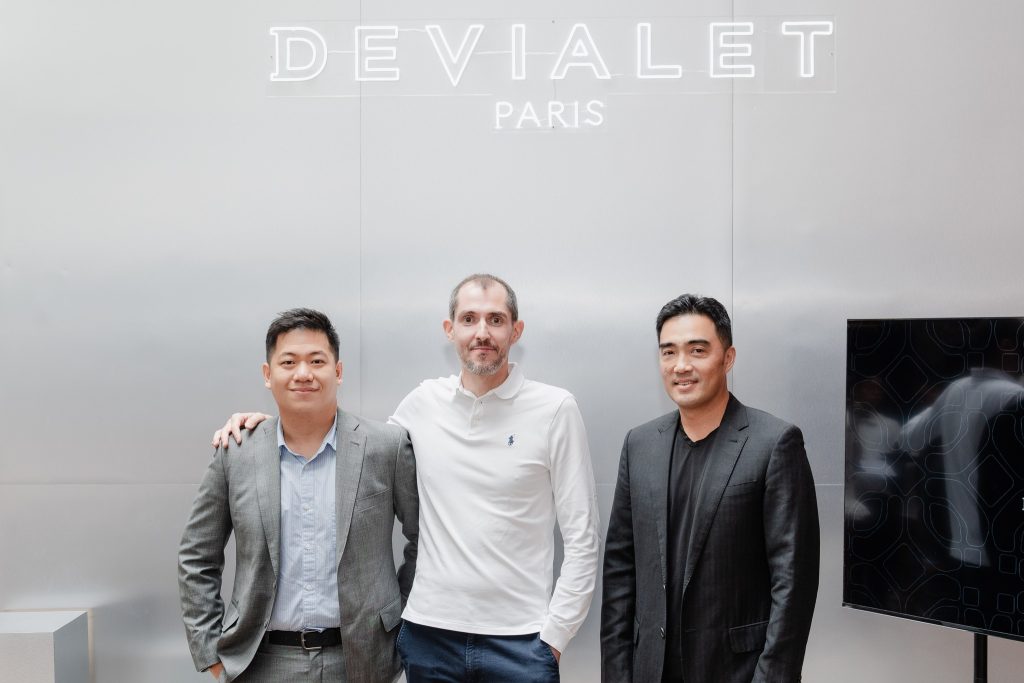
Devialet has an unexplainable magnetic quality to it. It creates experiences that are hard to put into words, but evokes an emotion within you. The French audio technology company that started in 2007, well-known for pushing the frontiers of sound and design, continues to push the limits of acoustic innovation through cutting-edge engineering. Its latest-generation Analog Digital Hybrid (ADH®) amplification and Heart Bass Implosion (HBI®) technology exemplify Devialet’s pursuit of sound that moves both the senses and the soul. We sat down with Jean-Loup Afresne, Devialet’s Chief Product Technical Officer, and Martin Ku, General Manager of Devialet APAC, to talk about the magic behind the brand—from the emotional roots of sound and the evolution of their iconic Phantom series, to the challenges and ambitions driving Devialet’s global expansion. Together, they reveal how Devialet continues to connect people to sound in its purest, most life-affirming form.
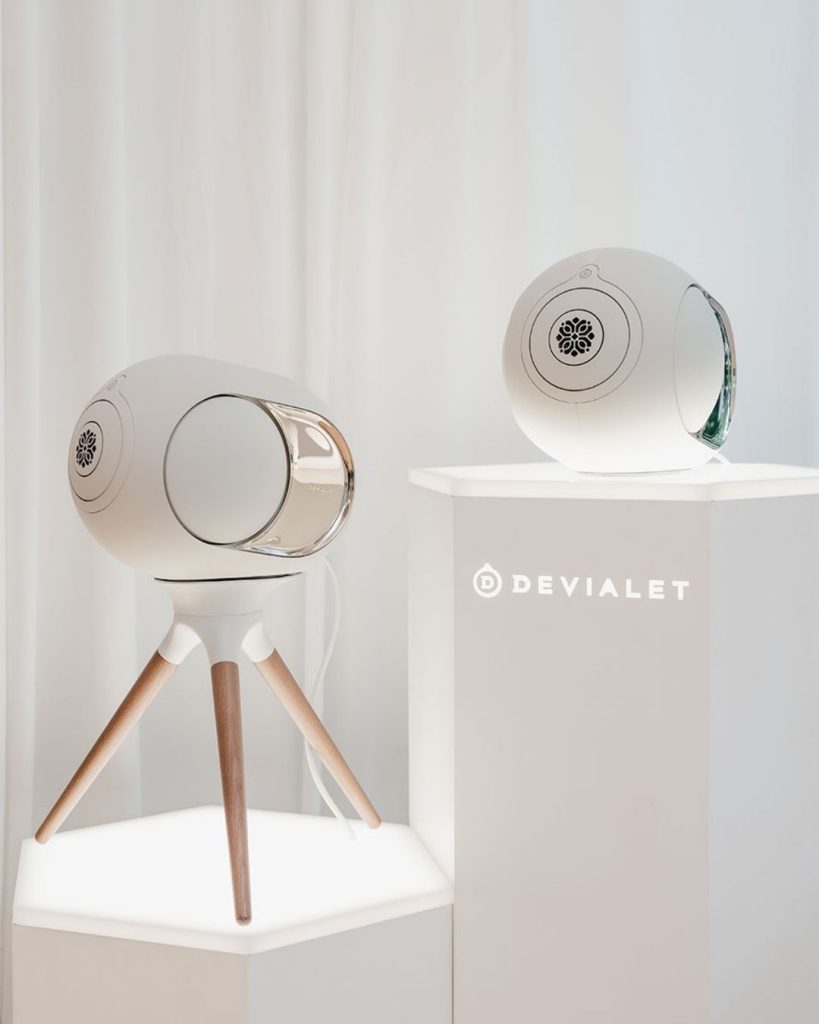
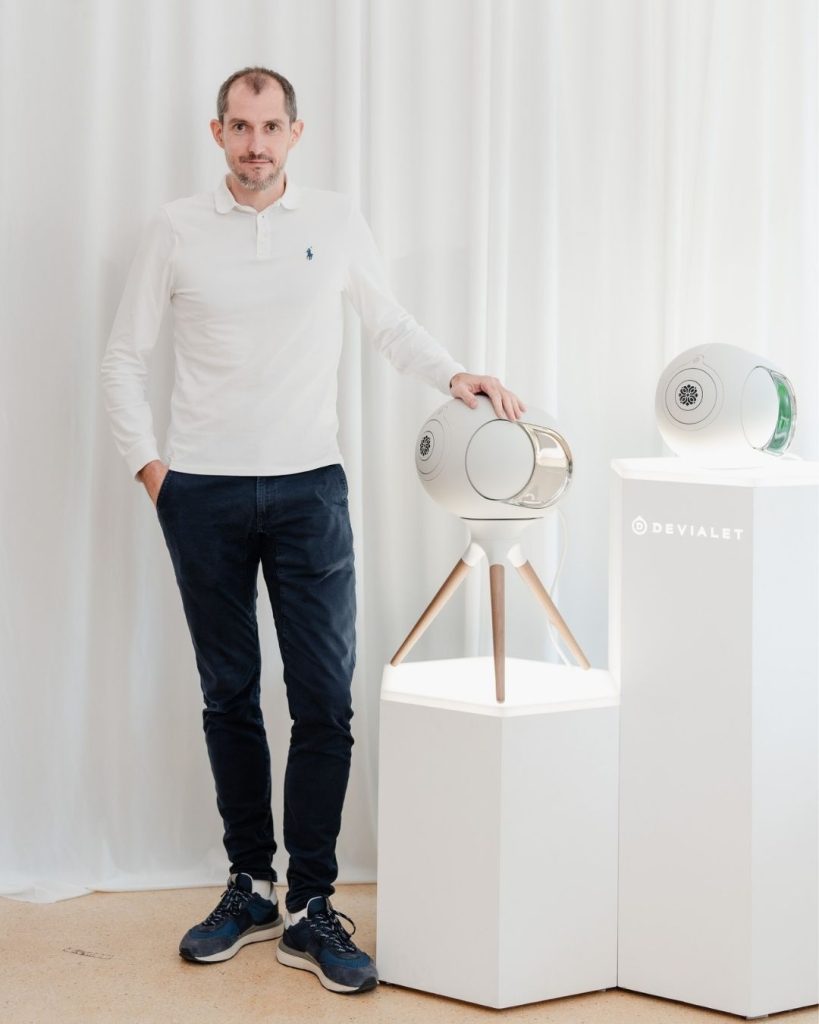
Jean-Loup, can you recall the first moments in your life when you were truly in awe of sound? How did those experiences inspire you to explore sound from both a technical and artistic perspective?
JLA: I was born in a family where sound and music are very important. My parents and my brother are not professional musicians, but they do play a lot of music. I remember I was really young—maybe three years old, there was music everywhere around me: music from records, live music from instruments, from pianos, acoustic guitars, and my mother singing. I do remember specific moments when night was coming and I was going to sleep, my father would play the piano. I used to fall asleep to music. In college, I would spend Sunday afternoons listening to music very loudly to get the energy for the week ahead.
I concluded that the sound we could hear from the Hi-Fi system at home, which was not crazy expensive, just a very standard one, was very bad for acoustic instruments. For me, it was a surprise, and upsetting not being able to listen to records with the same quality as live music at home. So that’s how I started to think about what I wanted to do later: to bring this live sound quality, but make it available for everybody.
Devialet’s mission is to “connect you to sound in its purest and most fundamental form—sound that makes you feel truly alive.” If you had to describe the “Devialet sound experience”, how would you put it into words?
JLA: We want people to have the understanding that music is very important and that it can have a huge impact on their lives. Music is really powerful, so we believe in the power of sound—which is much more powerful than screens and displays. Today, we are full of screens everywhere, but it doesn’t bring any specific emotion. Music has this power. It’s a physical sound and real-life music coming directly into your mind, health, and body—that’s why we say “alive with sound.” The Devialet sound is very powerful, with full bass but also very precise trebles and low distortion—so it’s really like having a real instrument in front of you.
It’s been 10 years since the iconic Phantom, and now the Phantom Ultimate is here. It has been described as “the evolution of revolution”. Could you elaborate on why this phrase captures the product’s journey?
JLA: It really increases the transparency and clarity in the mid-range and trebles—that’s a really important part. Bass is more about physical sound, so it makes you feel alive, but trebles and mid-range are very important for the clarity—the voices—so the singer feels very alive here. We worked a lot on the amplifier, the tweeters, and the mid-range to have lower distortion and increased bandwidth.
Looking ahead, what are the greatest challenges you foresee in further advancing sound quality—whether in terms of materials, supply chain, miniaturisation, or acoustic limits?
JLA: Material science is very important, as well as digital signal processing. To add that sound to the environment, because the room acoustics are not the same for each room. So the devices should be able to adapt to that—we already made a few steps with Devialet Mania, our portable speaker—and we want to go further with that. Material science is also about getting things smaller and smaller, but still very strong and efficient.
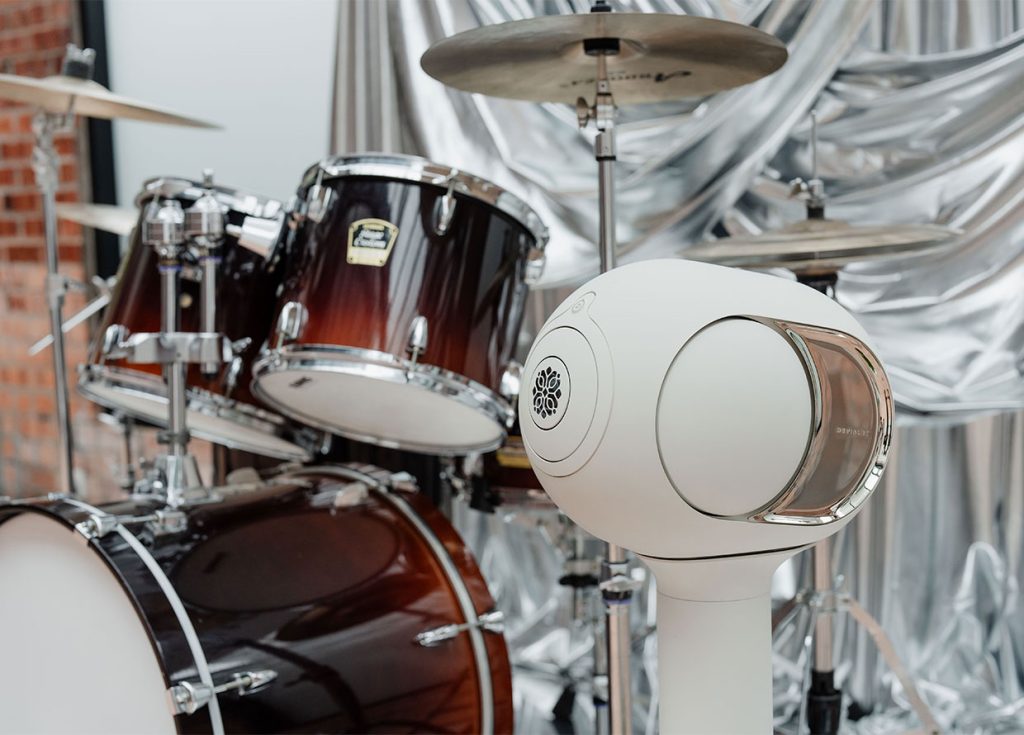
Devialet has collaborated with a wide range of brands, including partnerships with the Opéra de Paris, Alpine, and Denza. Why do you see these collaborations as valuable, and what do they bring to Devialet and its users?
JLA: The first thing is that we want to improve audio quality in many different situations with our products, because it’s very important that audio quality in cars, where people spend a lot of time, is also very good. So one of our missions is to improve audio experiences everywhere—that’s why we work on cars, planes, and so on. It’s also very important to us in terms of marketing and business development to allow our brand to be known widely. And because we are partners with much bigger companies than us, of course.
Are there any artists, cultural icons, or even places that spark inspiration in how you approach sound and design at Devialet?
JLA: Inspiration… that’s a difficult question, because it’s not a specific inspiration that we have. Otherwise, when you have strong inspiration, it becomes visible in the product you’re making—that you are inspired by a specific thing. So we really try to start from a blank page. For product design and attention to detail, Apple is important, because they take care of the materials and the quality of the finish—the aluminium body is very nice. But also, the whole world of French, Parisian luxury brands inspires us in terms of materials. But I’ll say we follow intuition—that’s more important. We are really focused on the sound experience that we want to create, and then we drive everything to achieve that. And since no other company brings the kind of experience we do, the inspiration from others is low. Hence, we follow our own way.
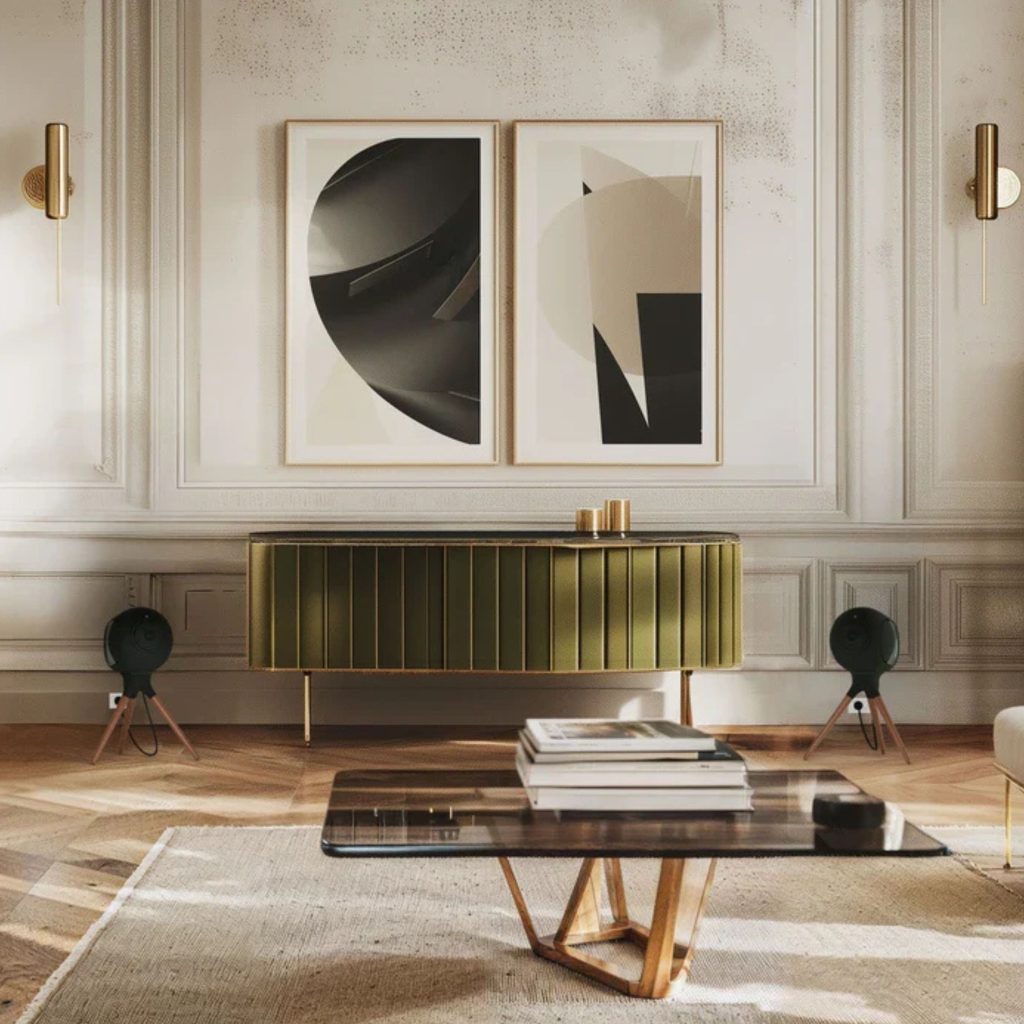
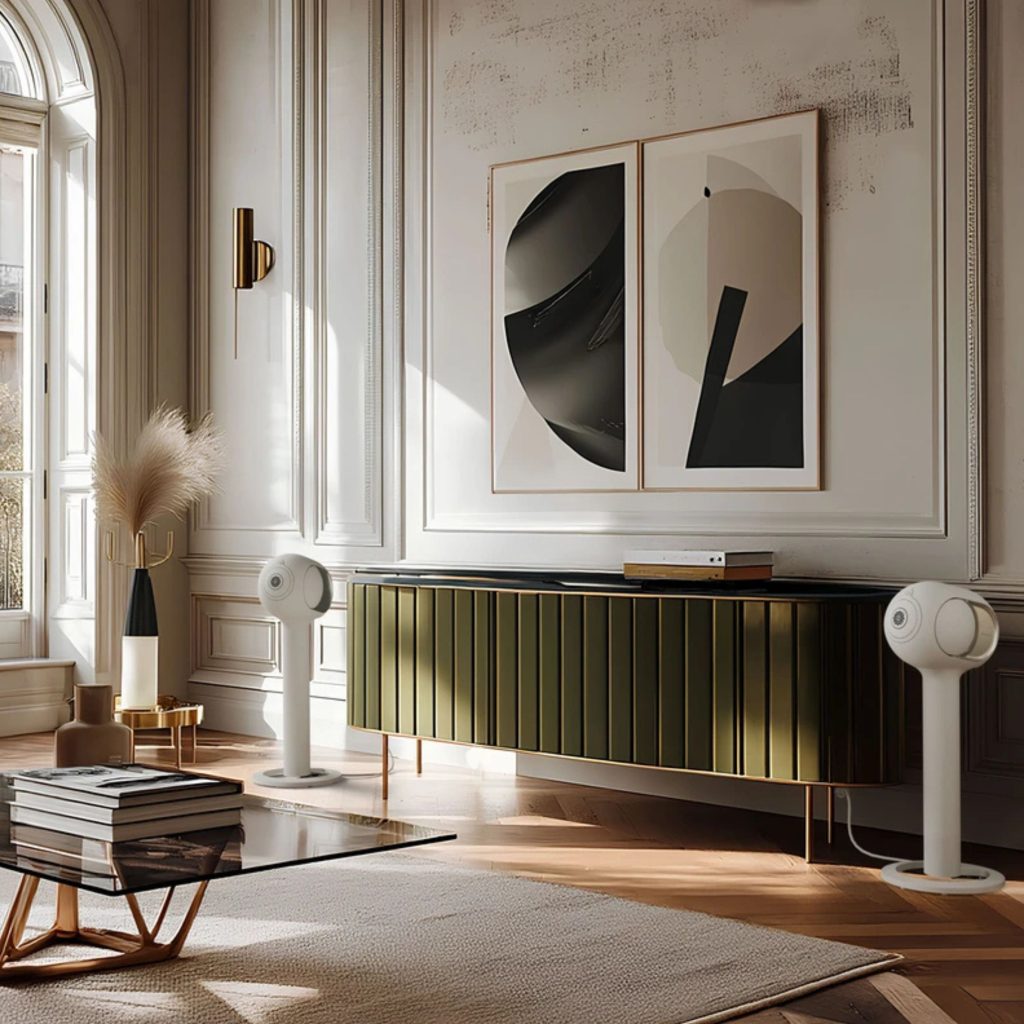
When you’re testing sound quality, are there any songs you always come back to?
JLA: Ah, yes… another difficult question. We don’t tune the systems like most other companies do. Usually, they have “golden ears” kind of people that they trust, and they tune the sound by themselves, using a specific tracklist. But we don’t really work this way. We pay attention to scientific methodology. We rely on a lot of deep and technical measurements to ensure we have good objective performance. We don’t relate to subjective things. But this is done by using many different tracks—classical tracks, jazz, rock, electronic, pop music—because we don’t want to focus on one kind of music. Other people might target a certain type of music, but for us, we use a lot of tracks, which can be from Daft Punk to Paganini and many others. We also take input from many different people inside the company, not only from the sound engineers.

Martin, what drew you to join Devialet in the first place?
MK: To be honest, when I was approached by Devialet, I did not know the brand. Initially, I was not interested. There were then a few more talks with someone who was recruiting me, and they were telling me about the investors that were in the company. At that time, they mentioned Bernard Arnault, Jay-Z, Foxconn, and Naver. I’ve been in different companies with different investors, but never one that had such a broad range of investors. There’s luxury, tech, music—and across different countries—so that’s very odd to see. But one thing in common is that these people are all very intelligent. So if all of them are placing bets on this company, then I thought I should understand why.
My brother and I are musicians—I’m not professional, but my brother is, so he has a very good ear. When we were in Shanghai (I used to live there), we went into a shop to check them out. It wasn’t a Devialet store, just a store that had a couple of speakers they could display and let you listen to. So we went there, and they let us put on some of our own songs. My brother played a couple of tracks—he’s a jazz musician—and his eyes just opened up. He looked at me and started to nod his head, and I said, “Okay, we’ll take the interviews.” It was a real experience, and it wasn’t even in a great listening room—it was just an open space. That was in 2018. It was so distinctive—I hadn’t heard anything like that before. It was that feeling and experience that got me in the door, talking to the people, and understanding the vision—and that’s what got me into the job.
What are Devialet’s strategies for global expansion, particularly in Asia (for example, Malaysia), both in terms of market development and ensuring local product support, distribution, and service?
MK: One thing that’s important for us to understand in Asia is that we may not know so much about the local market, and definitely not better than someone on the ground with long experience. We know the product experience and how to talk about it, so what’s critical is that we select a really good partner who fits where we’re trying to go. That can make or break us in any country. We’ve been fortunate to find several of these in the region. Malaysia has been a relatively new relationship, but an incredible partnership.
When we know we have the right partner, then we start to ask: where do we want to establish the brand? Is that in the form of a branded store? Because for this product—I can try to talk about it a lot—but nothing will compare to experiencing it. Just like me, when I first heard about it, I thought, “What are you talking about? Music is just music.” You need a physical location, and that location has to have an incredible-sounding demonstration so that people can truly experience it.
That’s really the mission—to get as many people in the door as we can. When they listen and understand, it starts to change people’s lives and how they think about music. Hopefully, it helps them step away from their phones and reconnect with themselves.
Find out more and purchase at devialet.com, the Devialet Store in Pavilion Kuala Lumpur, and other authorised retailers.
READ MORE
GRAZIA Malaysia Turns It Up with Devialet’s Phantom Ultimate
9 New Luxury Hotels To Visit In 2025
My Verdict on Apple’s New iPhone 17 Pro After A Week of Testing
